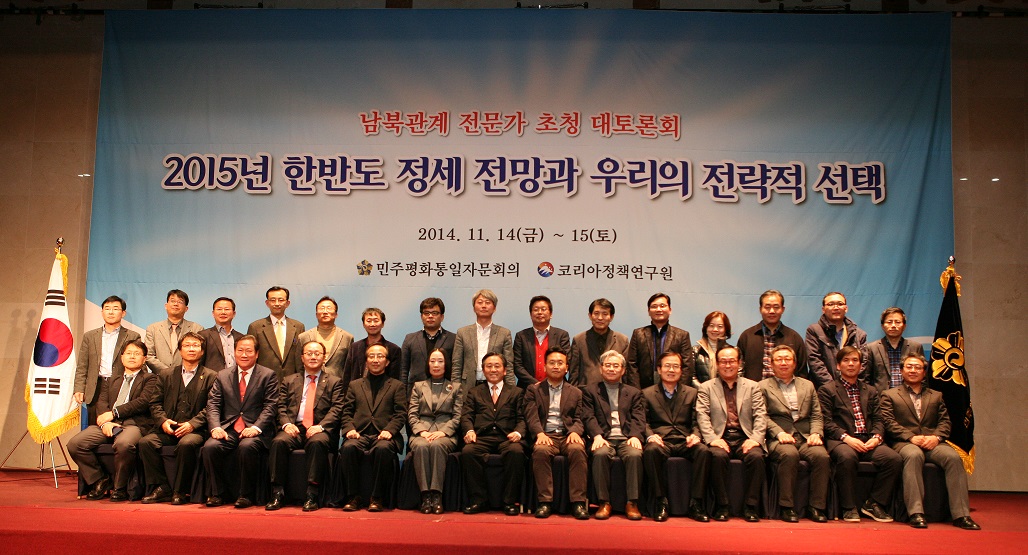| 「第13回南北関係専門家討論会」開催 |
|---|
| 世論分析課 , 2014-11-17 |
13th Conference of Experts in Inter-Korean Relations Held.
How the Korean Peninsula Situation Would Change in 2015!
- Discussion on the change and opening of North Korea through strategic choice -
How the Korean Peninsula Situation Would Change in 2015!
- Discussion on the change and opening of North Korea through strategic choice -
The National Unification Advisory Council (NUAC; Secretary General: Park Chan-bong) and the Korea Policy Research Center (Director: Yoo Ho-yeol) held the 13th Panel Discussion on Inter-Korean Relations last Nov. 14 and 15 in Benikea Hotel Cheongpung Hill, Jecheon, Chungbuk Province. Themed "2015 Prospect of the Korean Peninsula and Strategic Choice," the panel discussion was divided into 2 sessions for more intensive debate on the subject.
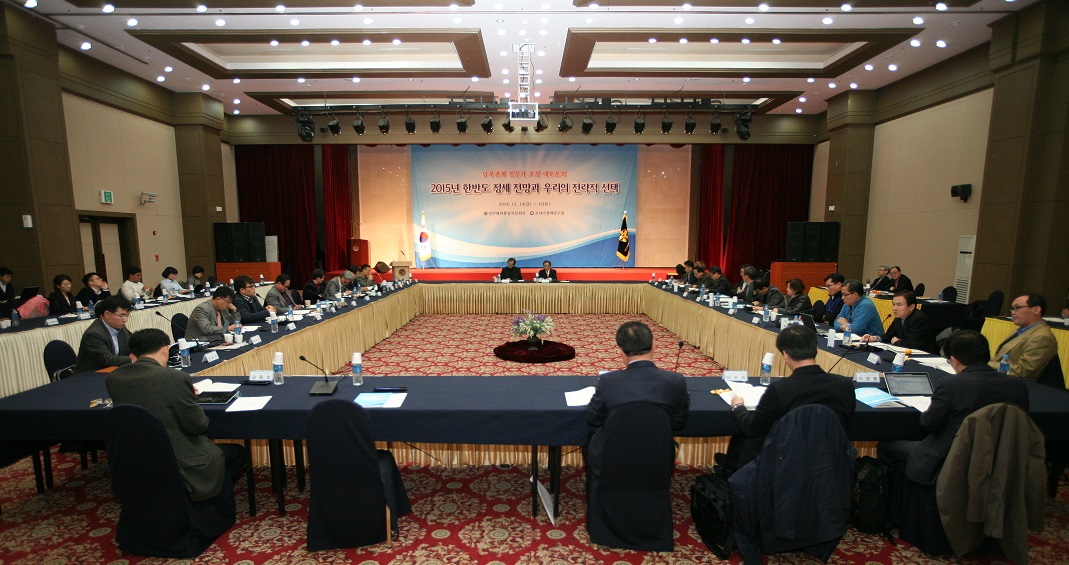
Panel Discussion
"A systematic change of North Korea is required to achieve unification based on the basic order of free democracy, and South-North cooperation and international cooperation should be systemized to manage the course of unification in a stable way," Secretary General Park Chan-bong said in his welcome remarks.
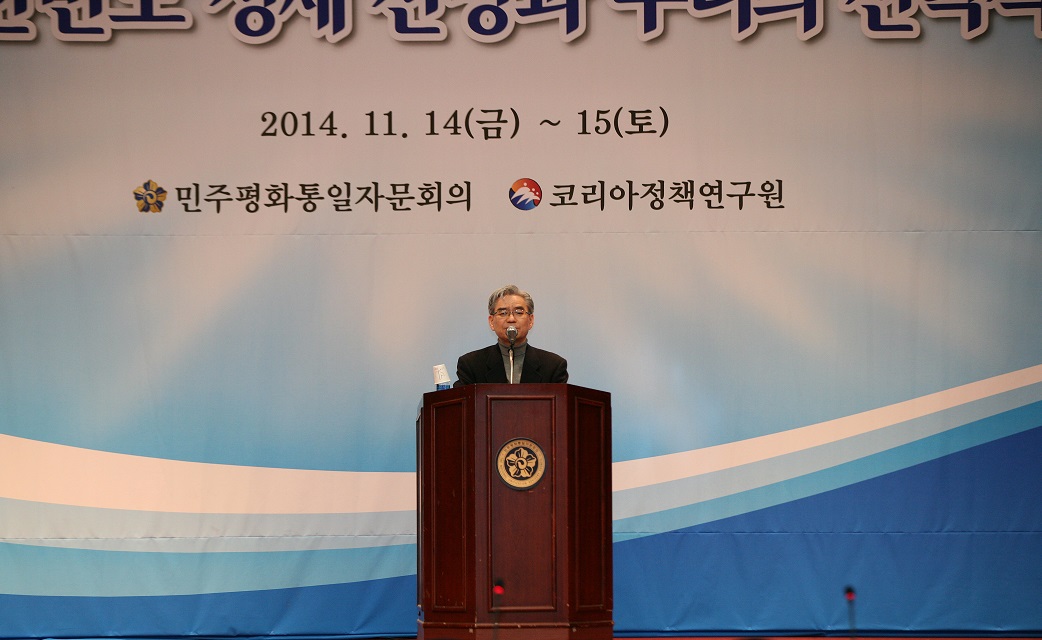
Park Chan-bong, Secretary General
According to Yoo Ho-yeol, Co-Organizer and Director of the Korea Policy Research Center, 2015 is the 70th anniversary of liberation of Korea, and we need embodied action plans not for "What we ought to do" but "How we should do it."
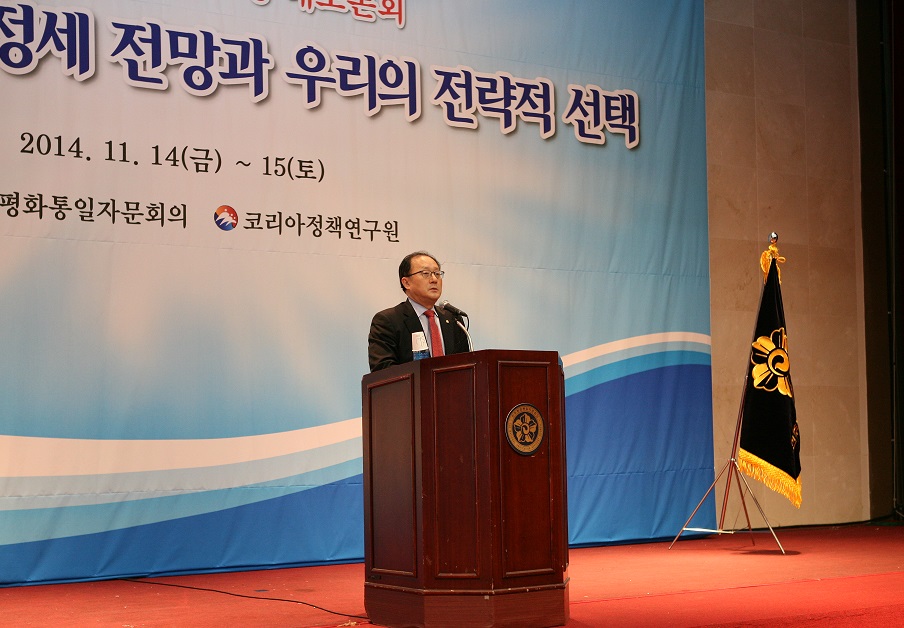
Yoo Ho-yeol
Prof. Son Poong-sam, Former President of Soonchunhyang Univ., noted that national unification has come to us as a reality. We will make a quick approach to the unification lead by journalists and supported by scholars, and the sincerity of national unification can be secured, he added.
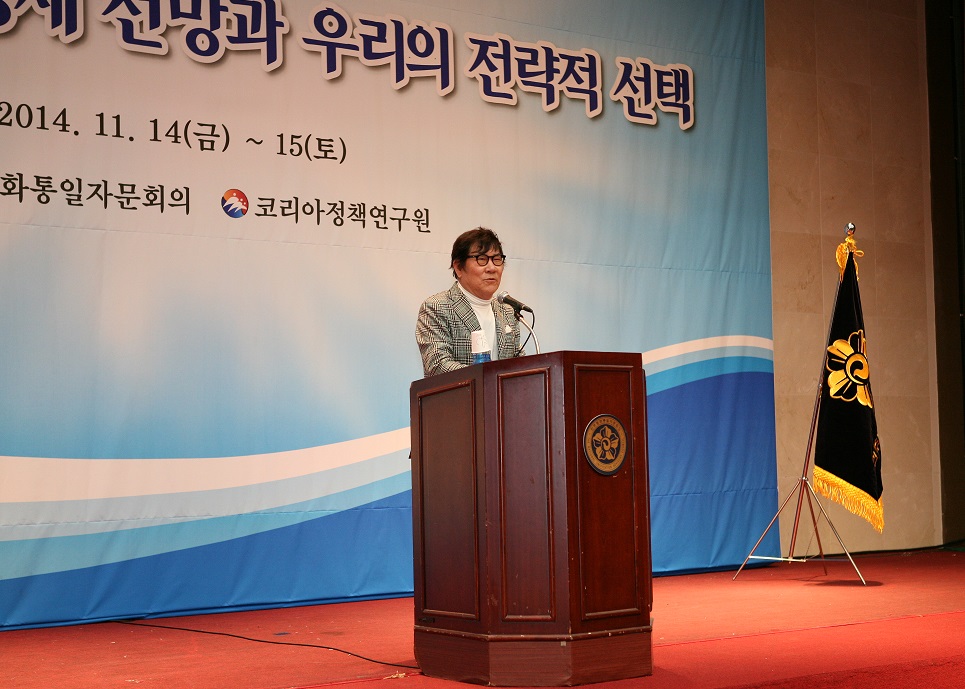
Prof. Son Poong-sam
“Considering the unstable Kim Jong-un regime of North Korea and changes of Chinese policy toward North Korea, now is the best opportunity to achieve national unification, which should be the top priority of state affairs management,“ Jang Kee-pyo said in his keynote address.
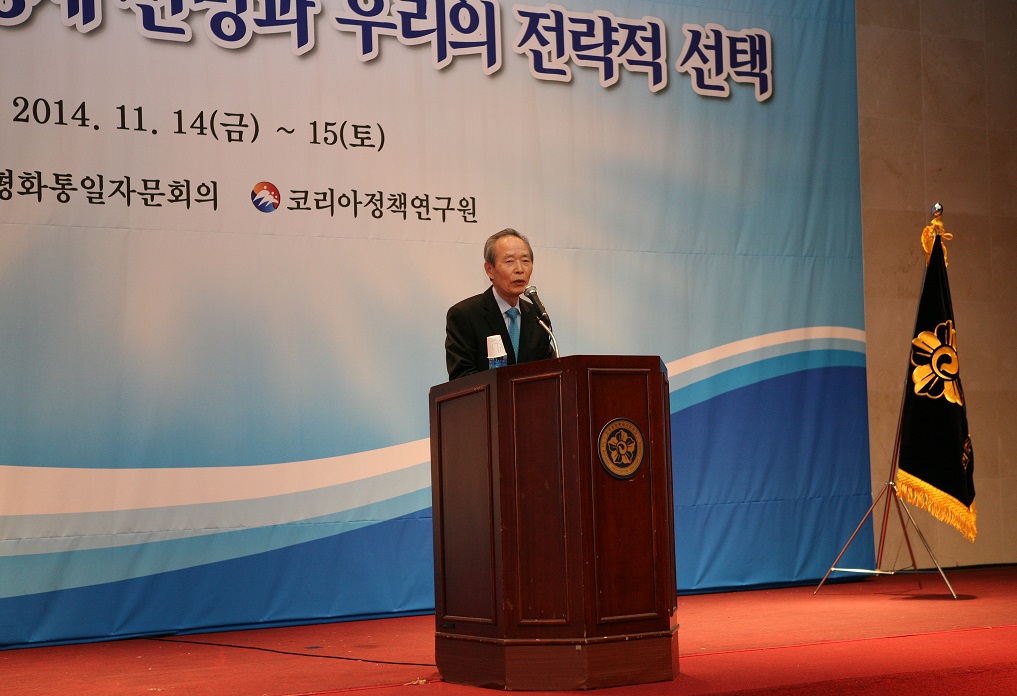
Jang Kee-pyo
First Session: How can we make North Korea change?
The first session was hosted by Prof. Yang Byeong-kee of Cheongju Univ. under the theme “How can we make North Korea change?”
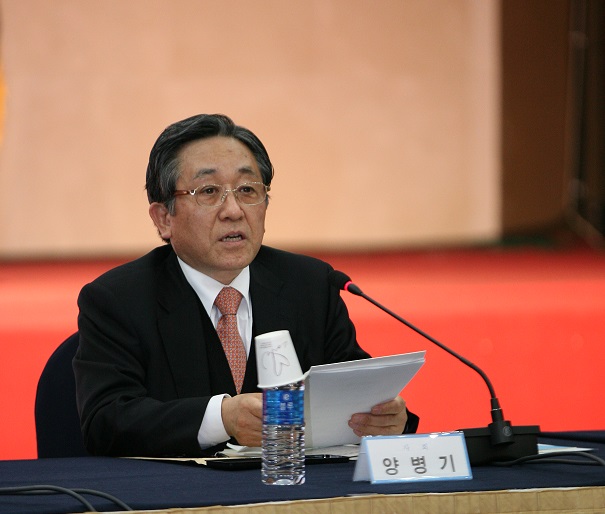
Prof. Yang Byeong-kee
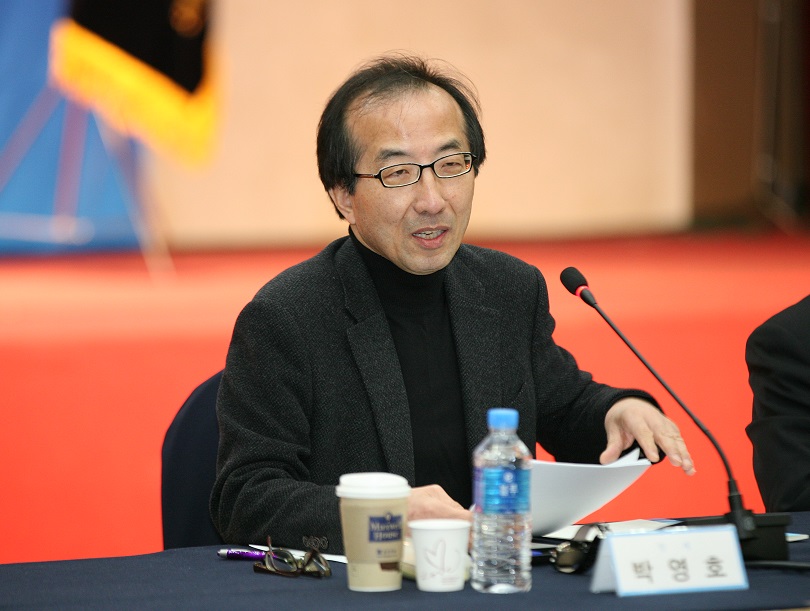
Park Yeong-ho, Senior Researcher
According to Park Yeong-ho, Senior Researcher of the Korea Institute for National Unification, we need to promote transactions with North Korea according to the international norms in the areas of economic cooperation and social economic exchange in order to make North Korea change. Since Pyeongyang still depends on traditional oppression and control means, we should make use of a means for North Korean residents to be exposed to the outside world for them to be repulsed by such control and oppression, he added.
"North Korea is promoting the expansion of external economy and diplomatic relation to pursue its policy of promoting nuclear weapons and economy in parallel. For such purpose, Pyeongyang is yielding to the pressure of the international human rights regime to some extent; therefore, we need to make use of the means of human rights more positively." he stressed.
Second Session: How can we build the foundation of national unification?
The second session was hosted by Prof. Choi Min-ja of Sungshin Women’s Univ. under the theme "How can we build the foundation of national unification?"
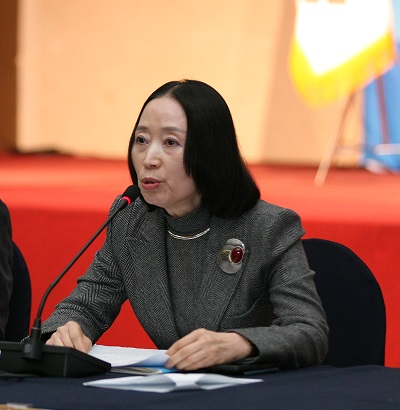
Prof. Choi Min-ja
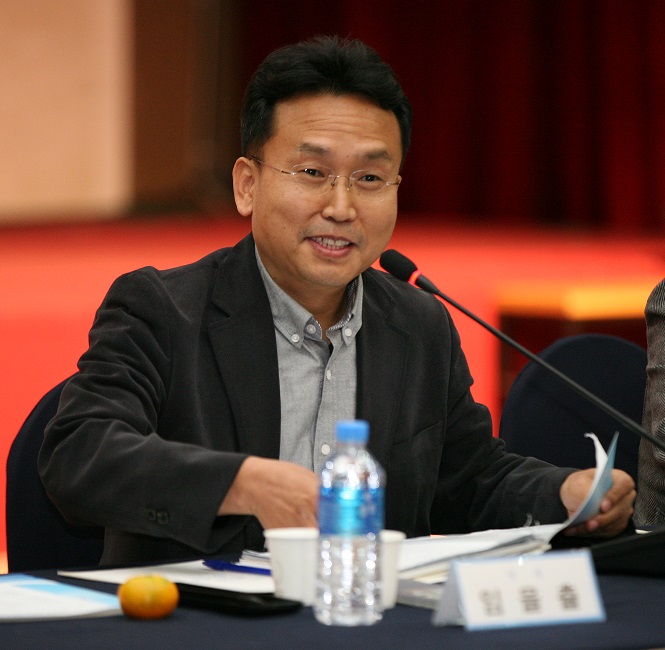
Im Eul-chul, Senior Researcher
“A sustainable foundation of national unification should be built jointly by South and North, even though it is difficult. In this regard, a great shift of our recognition toward inter-Korean relations and unification policy is required to build the grounds for national unification," said Prof. Im Eul-chul, Senior Researcher of the Far East Study Institute of Kyungnam Univ.
According to him, since all the fundamental problems including the nuclear issue were caused by the North Korean system, the most critical issue is to let the system change. Coping with the system based on the democratic market economy will be the most efficient way. A total of 30 experts in inter-Korean relations candidly expressed their views on the issue.
